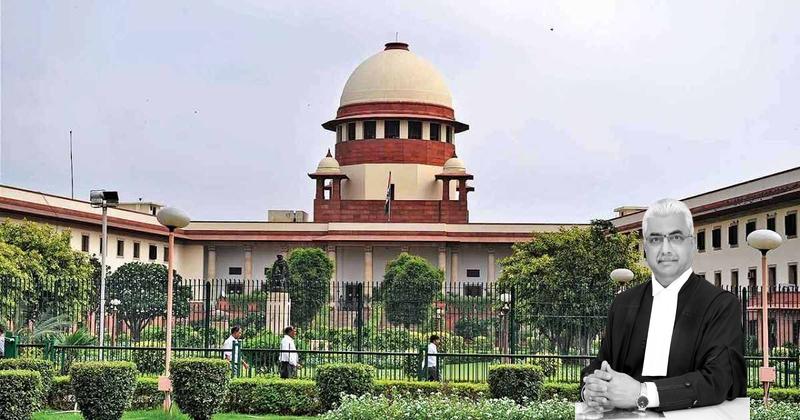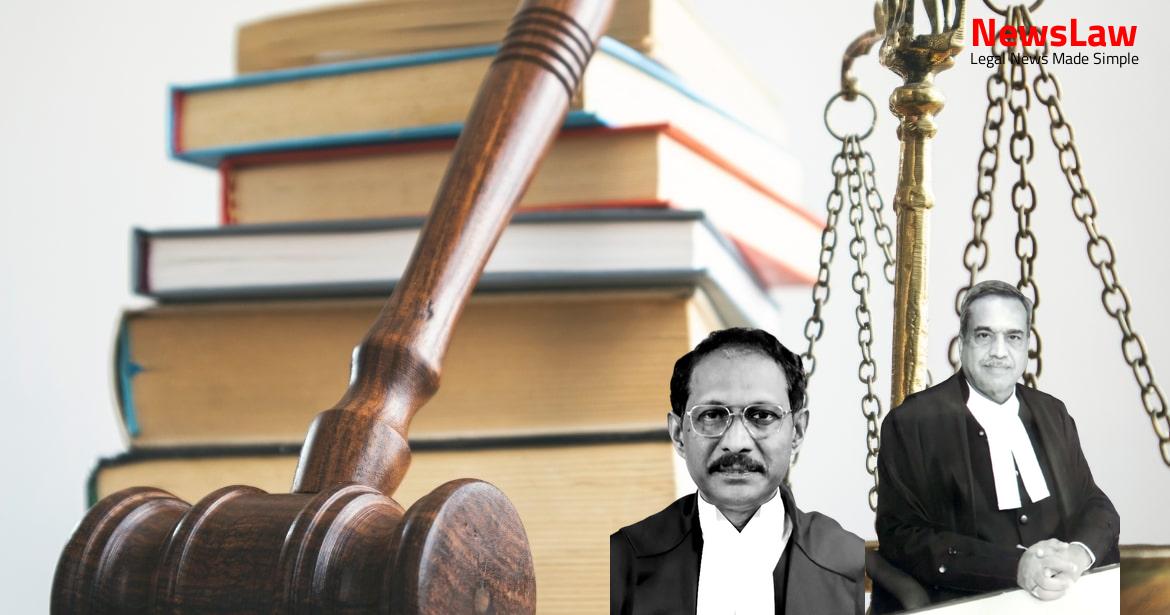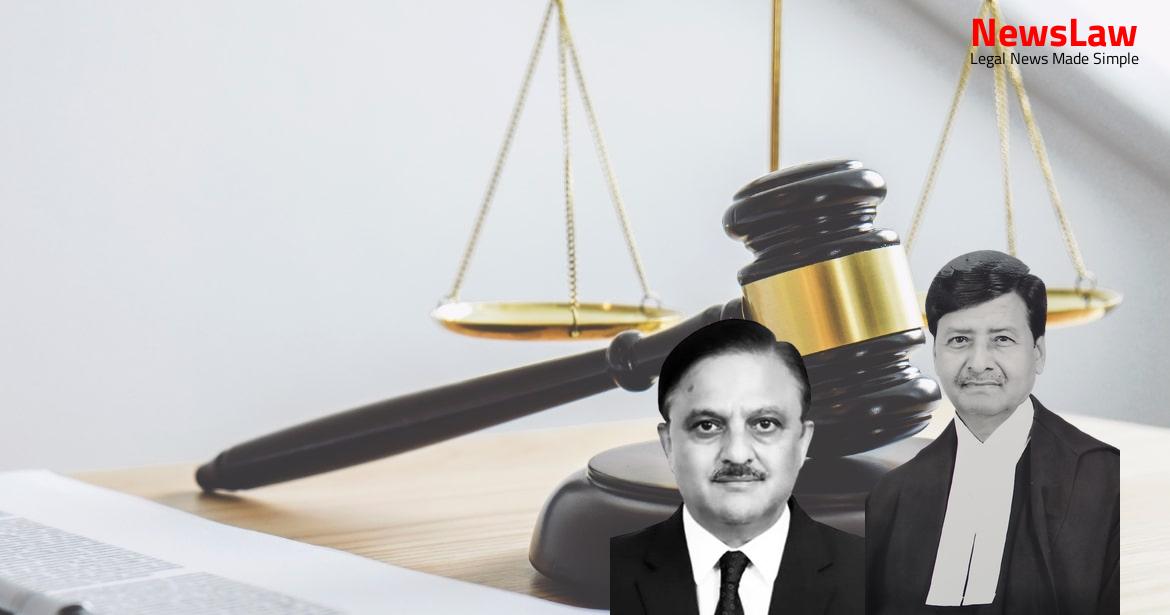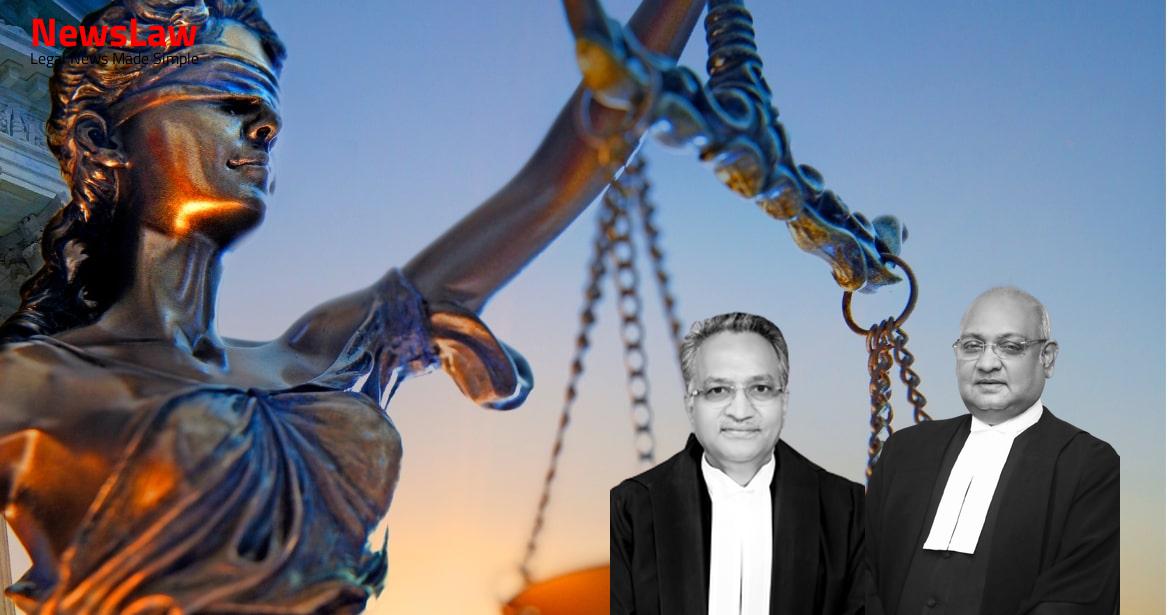By way of these appeals, the appellant, being Official Liquidator of the company named IISCO Ujjain Pipe and Foundry Company Limited, has questioned the common judgment and order dated 05.02.2009 in APOT No 248 of 2008 and APOT No 235 of 2008, whereby the Division Bench of the High Court at Calcutta has dismissed the appeals against the common judgment and order dated 25.04.2007 in C.A. This sale notice reads as under: – “ SALE NOTICE
Also Read: https://newslaw.in/supreme-court/constitutionality-of-lotteries-regulation-act-1998/
Pursuant to the order of the Hon’ble High Court, Calcutta dated 4 April, 2003 offers are invited in sealed cover enclosing a Bank Draft or Pay Order in earnest of Official Liquidator, High Court, Calcutta for an amount equivalent to 20% of the offered amount as 3 favour money for sale of the assets of the Company Inspection of the assets of the Company [In liqn.] will be allowed to the intending purchasers on 26 May 2003 and 27 May 2003 between 12 noon to 4 p.m. The abovementioned sale notice carried certain terms and conditions appended to it, reinforcing that the sale would be on “as is where is whatever there is ” basis and stating that the appellant OL would not be providing any guarantee about the quality, quantity or specification of the assets sold; the tenderers were to satisfy themselves in this regard after physical inspection of the assets of the company; and the purchasers would be deemed to offer with full knowledge as to defects, if any, in the description, quality or quantity of the assets sold. Pursuant to the aforementioned sale notice, the assets were sold to one Nagendra Jain for a sum of Rs. Subsequently, the respondent No 3 was nominated in the place and stead of the said Nagendra Jain as purchaser of the assets and properties of the company in liquidation. In response to such invitation of claims, the respondent No 1 Nigam filed affidavit of proof of debt with the appellant, claiming towards arrears of property tax a sum of Rs. For deciding the applications so preferred by the respondent No.1, the Company Court framed the following question for adjudication: – “The question before this Court is whether claims, that might arise against the Official Liquidator representing the company in liquidation, for any period of time, subsequent to the order of winding up, can outright be rejected.” 1.
On the other hand, it was contended on of behalf the appellant OL that he was liable to pay only those taxes which accrued till the date of winding up and became payable within one year thereof; that in view of Section 529A of the Companies Act, 1956, workmen’ s dues and the dues of secured creditors to the extent they were secured, were to be paid pari passu, and prioritised over all other debts; and that Rule 154 of the Rules of 1959 provided for filing of affidavit of proof of debts as on relevant date and the appellant had allowed taxes due on the relevant date that had been proved. The Company Court further held that reliance placed by the appellant OL on Section 530 of the Companies Act and Rule 154 of the Rules of 1959 was patently misconceived, while observing that there was no provision in either of them which restricted the claim only until the date of order of winding up. For the protection of assets, the Official Liquidator representing the company might have to retain rented premises, obtain supply of electricity, engage security guards and take such other steps involving expenses as the Official Liquidator might deem necessary.
The dispute between the Official Liquidator and the applicant is with regard to the rates and taxes for the period between 10th July, 1997 being the date on which the company was directed to be wound-up and 4th July, 2003 being the date on which the sale in favour of the purchaser was confirmed.
The contention on behalf of the Official Liquidator, that debts and claims and particularly claims on account of municipal tax are payable only till the date of winding up of the company, in view of Section 530 of the Companies Act, 1956, read with Rule 154 of the Companies (Court) Rules 1959, is patently misconceived. In winding up, liquidators who carry on the company’s business continue with rateable occupation of the premises and they are in rateable occupation even if they occupy merely for the purpose of fulfilling the outstanding contracts or preventing damage to the company’s property (Halsbury Laws of England, 4 Edn., Vol.39). The Company Court also took note of the fact that the appellant OL had rejected the claims only on the ground that he was not liable to pay post-liquidation expenses but had neither objected to the determination of annual value nor filed any appeal under Section 184 of the M.P. The appellant OL contended before the Division Bench that he had not carried on any business of the company and consequently, did not in any way earn profit from use of the assets of the company in liquidation; that the provisions of the Companies Act did not envisage payment of post- liquidation taxes on property and water and the assets were only custodia legis after the winding up order until the sale; and that the sale was on “as is where is whatever there is ” basis, which would mean that the assets were 10 not free from encumbrances when sold and thereby, the liability of taxes was shifted to the purchaser. The Division Bench held that in absence of clear provision in the sale notice that intending purchaser had to satisfy himself as regards assets of company in liquidation in all respects including encumbrances, the appellant was obliged to discharge the post-liquidation liability towards property and water taxes; and that it would not be reasonable to fasten liability on a purchaser without informing him about the encumbrances prior to the sale.
Also Read: https://newslaw.in/case-type/civil/validity-of-tamil-nadu-land-acquisition-acts/
After making a comparison between the terms and conditions of sale in the present case and those of sale in the aforesaid case, it was observed that sale notice in the present case was not couched in similar and comprehensive language and there was no occasion for respondent No 3 to make himself aware about the encumbrances, if any, in respect of assets of the company in liquidation, which he intended to purchase. The Division Bench of the High Court observed and held as under:- “There is no express provision in th e sale notice that the liability to bear charges on account of water and property taxes must be borne by the purchaser. The terms and conditions of the tender only protect the Official Liquidator to the extent of quality, quantity and specification and would not extend to claiming of immunity to clear taxes claimed by the Nigam.
Rule 154 also cannot have any manner of application since it provides the manner of estimation of value of debts and claims on the date of the order of winding up of the company. We, however, find no averment in the stay petitions to the effect that after the respondent no.3 had expressed interest to purchase the assets of the company in liquidation, the Official Liquidator had made him aware that purchase of such assets would carry with it the liability to pay arrear taxes recoverable by the Nigam. Any mistake in the notice inviting tender shall not vitiate the sale.” It was on consideration of the express provisions of clause (2) of the Terms and Conditions of Sale that the Apex Court proceeded to hold as under: “When the Official Liquidator sells the property and assets of a company in liquidation under the orders of the Court he cannot and does not hold out any guarantee or warranty in respect thereof.
It is understandable that once an intending purchaser is warned to satisfy himself in all respects as regards the immovable assets as in the said case, it is for his own benefit that he satisfies himself in all respects including encumbrances of the immovable property that he proposes to purchase. We are of the view that the liability on account of property and water taxes claimed by the Nigam, to the extent rejected by the Official Liquidator is a post-liquidation liability which the Official Liquidator is obliged to discharge in the absence of a clear provision in the sale notice that the intending purchaser must satisfy himself as regards the assets of the company in liquidation in all respects including encumbrances. Learned Counsel for the appellant has submitted that in true operation of the applicable provisions of law, the appellant cannot be made liable for the post-liquidation claims filed by respondent No 1 while disregarding the interest and entitlement of pre-liquidation creditors. Learned Counsel has also submitted that the benefit given to respondent No 3 by the High Court should not have been given in view of the terms and conditions of sale of the assets of the company in liquidation. Learned Counsel would emphasise that when the terms and conditions of the sale clearly mentioned that sale of assets would be on “as is where is whatever there is” basis, after having purchased the property on such terms, the purchaser is not entitled to make any claim as regards diminution in the price on the 16 ground of defect in title or description of the property. The submissions made on behalf of the appellant have been essentially supported on behalf of respondent No 2, Steel Authority of India Limited, one of the creditors of the company in liquidation, who has lodged the claim alongwith its subsidiary IISCO Ltd. Learned Counsel has submitted that the claims raised by respondent No.1 constitute “ liquidation expenses ”, being the expenses that had to be paid by the appellant OL to maintain the property while being in his custody; and, therefore, the obligation is to be met out of the value realised from the sale of assets of the company. Moreover, the said Section 530 relates to claims for pre-liquidation period for which, there is a need for prescribing priority but, the said provision has no application for the expenses incurred by OL during post-liquidation period, which are required to be paid in priority.
It has been submitted on behalf of respondent No 3 that auction purchaser is liable towards property tax and water tax with effect from the date of confirmation of sale in his favour i.e., from 04.07.2003 and he has discharged all such claims but then, there is no liability on him towards taxes prior to the date of confirmation of sale when property of the company was custodia legis and was in the hands of OL. : (2009) 4 SCC 486 to submit that auction purchaser without notice and in absence of any provision in terms of sale or any statutory provision could not be made liable for such arrears of tax; and that no charge could be enforced against any property in hands of transferee for consideration and without notice of the charge; and that for its enforceability, a provision of law must expressly provide for enforcement of a charge against the property in the hands of the transferee for value without notice to the charge and not merely create a charge. In regard to the submissions of the appellant that the auction purchaser had purchased the property with “ as is where is and whatever there is ” stipulation, learned counsel has strenuously argued that such a stipulation pertains to the physical properties of an asset and could not be construed as indicative of constructive notice of charge or encumbrance.
In this regard, further reliance has been placed on the decision in Delhi 21 Development Authority v. As noticed, part rejection of the claim of respondent No 1 Nigam by the appellant OL, in relation to the period aforesaid between 10.07.1997 to 04.07.2003 was not approved by the Company Court while observing that post-liquidation liabilities were to be treated as part of the costs of winding up of the company in liquidation and such liability would get priority over all other liabilities of the company. The Division Bench compared the terms and conditions of sale in the cited decision and the terms and conditions of sale in the present case and observed that the sale notice in the present case was not couched in similar and comprehensive language so as to oblige the respondent No 3 to make himself aware about encumbrances, if any, in respect of the assets of the company in liquidation. While leaving the irrelevant aspects aside, the neat question is as to whether the claims so made by the respondent No 1 Nigam towards property tax and water tax pertaining to the post- liquidation period, from the date of order of winding up and until the date of confirmation of sale of assets to the auction purchaser, are admissible against the appellant OL.
Notwithstanding anything contained in any other provisions of this Act or any other law for the time being in force, in the winding up of a company- (a) workmen’s dues; and (b) debts due to secured creditors to the extent such debts rank under clause (c) of the proviso to sub-section (1) of section 529 pari passu with such dues, shall be paid in priority to all other debts. Value of debts – The value of all debts and claims against the company shall, as far as is possible, be estimated according to the value thereof at the date of the order of the winding-up of the company or where before the presentation of the petition for winding up, a resolution has been passed by the company for voluntary winding-up, at the date of the passing of such resolution. Every decision of the Liquidator accepting or rejecting a proof, either wholly or in part, shall be communicated to the creditor concerned by post under certificate of posting where the proof is admitted and by registered post for acknowledgement where the proof is rejected wholly or in part, provided that it shall not be necessary to give notice of the admission of a claim to a creditor who has appeared before the Liquidator and the acceptance of whose claim had been communicated to him or his agent in writing at the time of acceptance. Next.-the costs and expenses of any person who makes, or concurs in making, the Company’s statement of affairs ; Next.-the necessary disbursements of the Official Liquidator other than expenses properly incurred in preserving, realising or getting in the properties of the company ; Next.-the cost of any person properly employed by the Official Liquidators ; Next.-the fees to be credited to Government under section 451 (2) ; Next.-the actual out of pocket expenses necessarily incurred by the members of the Committee of Inspection, and sanctioned by the Court. (2) Save as otherwise ordered by the Court no payments in respect of bills of advocates, shall be allowed out of the assets of the company without proof that the same have been considered and allowed by the taxing officer of the Court. One of the principal points arising for determination in this matter is the impact and effect of sale of assets of the company in liquidation to the respondent No 3, particularly when the property was sold on “ as is where is whatever there is ” basis.
The sheet anchor of the submissions on behalf of the appellant OL is the decision of this Court in the case of United Bank of India (supra) that has been cited for the proposition that in the sale of property and assets of company in liquidation, the Official Liquidator does not hold any guarantee or warranty in respect thereof; and the intending purchaser has to satisfy himself in all respects, particularly as regards encumbrances.
The case of the Official Liquidator selling the property of a company in liquidation under the orders of the Court is altogether different from the case of an individual selling immovable property belonging to himself. As noticed and extracted in the impugned judgment of the Division Bench of the High Court, in the case of United Bank of India (supra), the sale notice, inter alia, carried a significant stipulation whereby the purchaser was put to notice to satisfy himself “ in all respects as regards movable and immovable assets as to their title, encumbrances, area, boundary, description, quality, quantity, and volume etc. We have reproduced hereinbefore the contents of the sale notice dated 09.05.2003 in the present case and the relevant terms and conditions of sale of the assets of the company in liquidation. All such stipulations were essentially pertaining to the physical 29 properties/attributes of the assets in question but, the significant omission in those terms and conditions had been to make it obligatory on the bidder/purchaser to make himself aware about encumbrances, liens and claims attached to the assets in question. In the said case, the appellant Financial Corporation had issued an advertisement for sale of various units and the respondent had been one of the bidders who offered a sum of Rs. In appeal before this Court, one of the submissions on behalf of the appellant Financial Corporation had been with 30 reference to the aforesaid decision in United Bank of India (supra).
The Court further observed that the appellant Financial Corporation was exercising the rights of an owner in selling the property and was not selling the property as an Official Liquidator; and the principles applicable to an Official Liquidator selling property under the orders of Court would not be applicable to an individual selling immovable property belonging to himself. In view of the aforesaid, we are of the considered opinion that the appellant Corporation cannot be permitted to rely upon Section 55 of the Transfer of Property Act, 1882. The aforesaid judgment relates to sale of the property and assets of a company in liquidation by the Official Liquidator under the orders of the court. … The case of the Official Liquidator selling the property of a company in liquidation under the orders of the court is altogether different from the case of an individual selling immovable property belonging to himself.” The aforesaid observation would be clearly applicable to the Corporation as it is exercising the rights of an owner in selling the property.
This Court allowed the appeals as the purchaser was not a consumer with reference to public auction of existing sites. Where there is a public auction without assuring any specific or particular amenities, and the prospective purchaser/lessee participates in the auction after having an opportunity of examining the site, the bid in the auction is made keeping in view the existing 33 situation, position and condition of the site. Once with open eyes, a person participates in an auction, he cannot thereafter be heard to say that he would not pay the balance of the price/premium or the stipulated interest on the delayed payment, or the ground rent, on the ground that the site suffers from certain disadvantages or on the ground that amenities are not provided. The Court held that purchasers would be liable to pay such interest having accepted the commercial plots subject to the conditions of the auction notice and allotment letter while observing, inter alia, as under: – “17…..
Also Read: https://newslaw.in/case-type/civil/restriction-on-project-wise-insolvency-resolution-process/
The Division Bench of Gujarat High Court held that the respondent was the owner of the property and that the charge for arrears was not enforceable, which was challenged by the Corporation before this Court. The saving provision of law must expressly provide for enforcement of a charge against the property in the hands of a transferee for value without notice of the charge and not merely create a charge.
The question one has to answer in circumstances like the present is not whether the purchaser had the means of obtaining and might with prudent caution have obtained knowledge of the charge but whether in not doing so he acted with wilful abstention or gross negligence. Such observations do not lend support to the case of the appellant so as to shift the entire burden on the auction purchaser despite significant omission in the terms and conditions of sale. In the appeal before this Court, it was held that dues in relation to municipal tax in terms of the relevant provisions of the Companies Act did not create an encumbrance or charge on the property and was considered to be a personal liability. In that capacity it cannot stand on a higher footing than an ordinary unsecured creditor who is required to stand in queue with all others similarly situated for the purpose of realisation of their dues from the sale proceeds. Nothing in this section applies to the charge of a trustee on the trust property for expenses properly incurred in the execution of his trust, and, save as otherwise expressly provided by any law for the time being in force, no charge shall be enforced against any property in the hands of a person to whom such property has been transferred for consideration and without notice of the charge.” had been concerning the issue relating to liability of auction purchaser of property in Court sale towards arrears of municipal taxes due on the date of sale, which are of statutory charge on the property sold and of which, the purchaser had no notice.
Act of 1956 were not creating any such encumbrance or charge on the property which would attach to the property for all times and under all circumstances nor they could be said to constitute any encumbrances which diminish the value of the property. Act of 1956 over the property in question, we are clearly of the view that the bidder/purchaser was entitled to proceed on the assumption that even if there were any arrears of such taxes under the M.P. This being the position, in our view, the Company Court and then the Division Bench of the High Court have rightly underscored the faults on the part of the appellant OL and have rightly held that the liability on account of the property tax and water tax claimed by the respondent No 1 to the extent rejected by the appellant OL has been a post-liquidation liability, which the OL was obliged to discharge, in view of omission in the 40 sale notice and then, in view of the operation of Rule 338 of the Rules of 1959.
Case Title: OFFICIAL LIQUIDATOR,CALCUTTA Vs. UJJAIN NAGAR PALIKA NIGAM (2023 INSC 489)
Case Number: C.A. No.-008015-008015 / 2010



